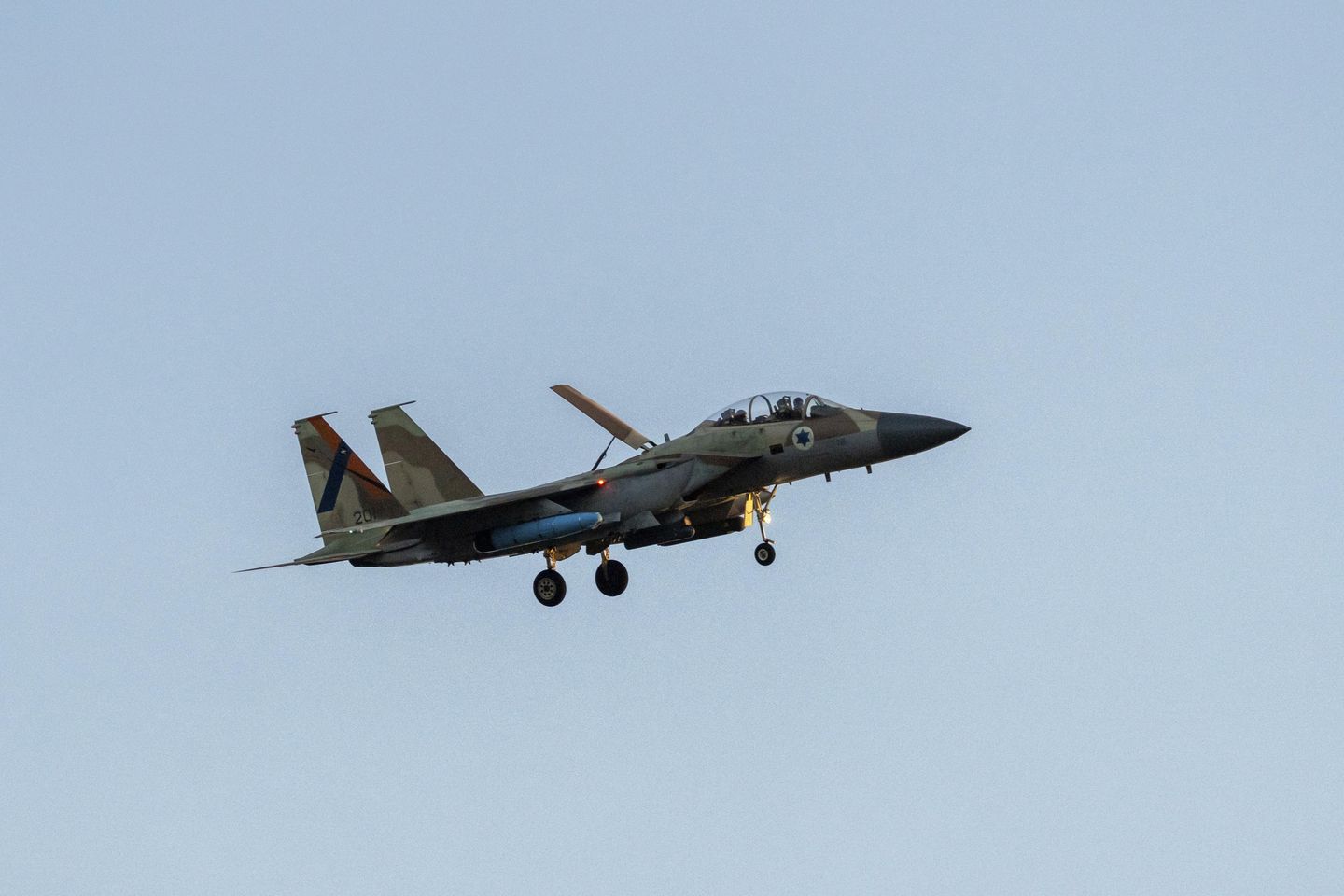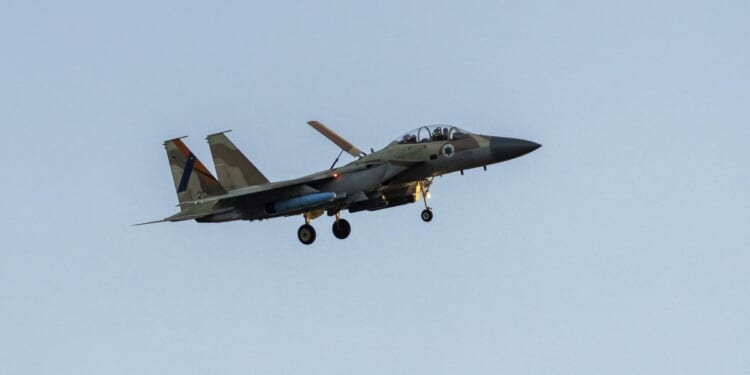
Iranian media reported explosions near an airport in the Iranian city of Isfahan early Friday local time, as some media outlets reported that the expected Israeli retaliation against the Islamic republic has begun.
Details were scarce Thursday evening, but multiple media outlets, citing unnamed senior U.S. officials, reported that Israeli missiles struck at least one site inside Iran. ABC News first reported the attack.
Other news outlets reported explosions in Syria and Iraq, likely against Iran-backed militias operating in those countries.
Shortly after the reported strikes, Iran fired air-defense batteries, according to media reports. It wasn’t immediately clear whether they were fired at Israeli missiles, aircraft, or something else.
The reported Israeli counterattack comes just days after Iran last Saturday fired more than 300 missiles and drones at Israel, the vast majority of which were shot down by Israeli and U.S. defenses.
That Iranian attack came as a response to an April 1 strike on a portion of the Iranian diplomatic complex in Damascus, Syria. That strike, believed to have been carried out by Israel, killed Islamic Revolutionary Guards Corps Gen. Mohammad Reza Zahedi and other Iranian officials.
Israeli officials vowed that they would respond to Iran‘s attack last weekend. If Thursday’s reports are true, the Israeli retaliation began with a strike in Isfahan along with the strikes in Syria and Iraq. That would mean Israel launched near-simultaneous strikes against Iranian and Iranian proxy targets in three countries, marking a significant escalation in the Middle East conflict.
Iran‘s semi-official Fars News Agency reported explosions near Isfahan’s airport.
“The cause of these sounds is still unknown, and investigations continue until the exact details of the incident are determined,” the news outlet said.
Isfahan is home to a major airbase for the Iranian military, as well as heavily-hardened sites associated with its nuclear program. An Israeli strike on Iranian nuclear sites would be a serious step on the part of Jerusalem. But Iranian media outlets reported Friday that all nuclear facilities were unharmed.
The Associated Press reported that commercial flights began diverting their routes early Friday morning over western Iran without explanation.
According to Fox News, the U.S. had no direct role in the attack, but did get pre-warning from the Israelis.
Secretary of Defense Lloyd Austin spoke with his Israeli counterpart, Defense Minister Yoav Gallant, just hours before the reported strikes into Iran.
The two men discussed “regional threats” and “Iran‘s destabilizing actions” in the Middle East along with plans to increase the flow of humanitarian aid into Gaza, including through a new route from Ashdod Port in Israel, Maj. Gen. Pat Ryder, a Pentagon spokesman, said.
Israeli retaliation against targets inside Iran could dramatically escalate an already tense and dangerous situation in the Middle East. Both Iran and its proxies such as the Lebanese militant group Hezbollah have vowed to strike back against Israel if Jerusalem launched any attacks on Iran.
According to reporters in Israel, sirens warning of an aerial incursion were going off in northern Israel near the Lebanon border.
A top Iranian military officer early Friday said Tehran would launch an attack on Israel’s nuclear facility in the Negev Desert if its own nuclear sites were to be targeted.
Brig. Gen. Ahmad Haqtalab, head of the Islamic Revolutionary Guard Corps’ Nuclear Facilities Protection and Security Command, told the state-owned Tasnim News Agency that Iran is prepared to confront any threat from Israel.
“The nuclear facilities of the Zionist enemy have been identified, and we have the necessary information about all the targets,” Gen. Haqtalab said. “Our fingers are on the trigger of powerful missiles to destroy the specified targets in response to their possible action.”
Gen. Haqtalab is likely referring to the Shimon Peres Negev Nuclear Research Center, located about 8 miles southeast of the city of Dimona in the Negev Desert.
Although security analysts believe the country has anywhere from 80 to 400 nuclear weapons, Israel’s official policy is that it won’t confirm or deny having any.
Launching strikes on Iranian soil would carry significant military risks for Israel. But some U.S. lawmakers say it’s highly possible that Israeli aircraft never entered Iranian airspace.
“Israel has the ability to conduct strikes against targets inside Iran without entering Iranian air space from aircraft over Syrian and Iraqi airspace,” Sen. Marco Rubio, Florida Republican, said in a post on X.
Tensions between Iran and Israel have been high for years, but they have neared a fever pitch in the months since Oct. 7, when the Iran-backed Palestinian militant group Hamas launched a terrorist attack that killed more than 1,200 Israelis.
• Mike Glenn contributed to this report.












